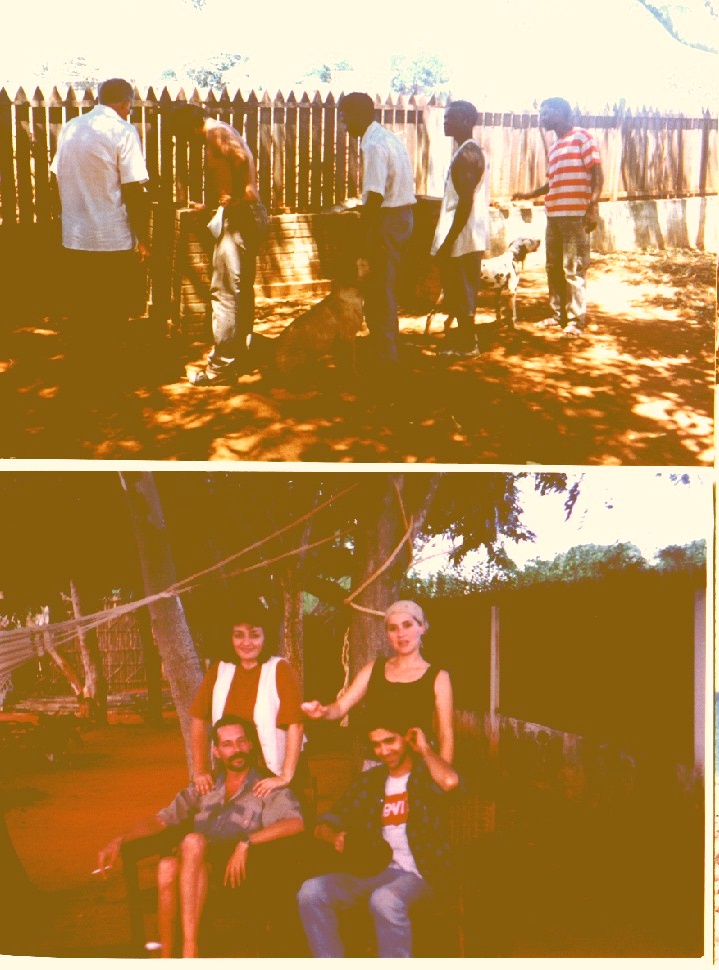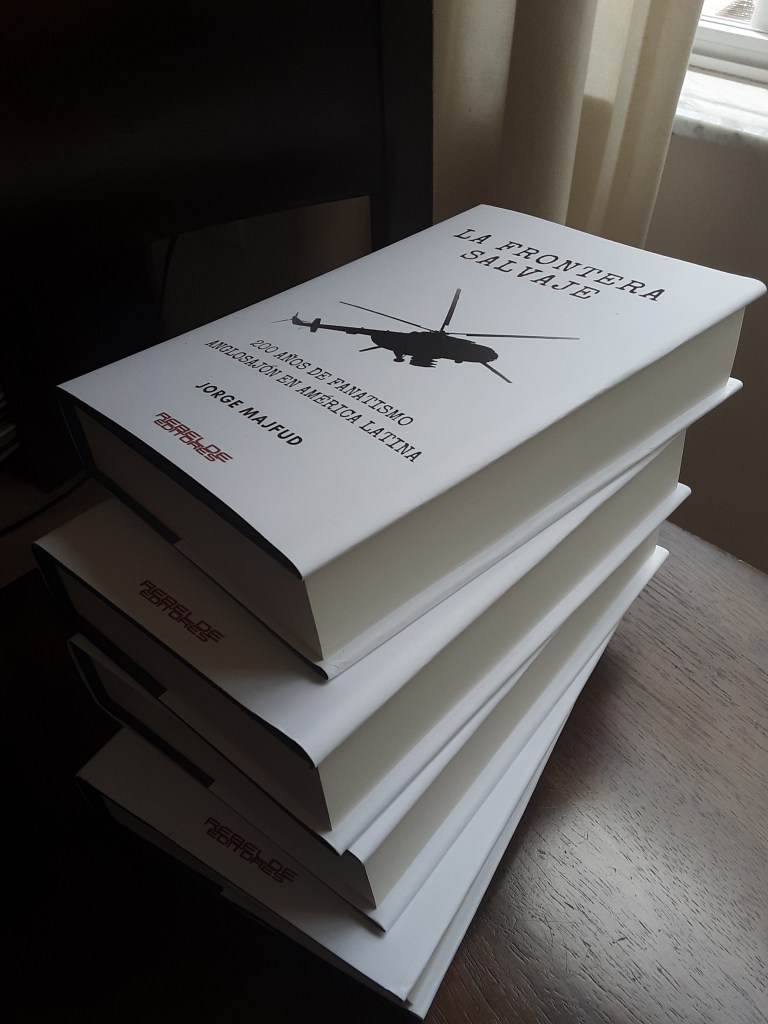In Critique of Pure Passion (1998) and later in newspaper articles, I enthusiastically wrote various theories about the wonderful world of previous centuries that I had lived in Africa and about the almost as interesting world to come. Oh, youth, divine treasure…
In Mozambique, at the Pemba Naval Shipyard, I discovered and collaborated (as a young architect from the Americas, mistakenly called “master” by hundreds of kind workers) in the construction of huge British and Portuguese ships of the 19th century. For the shipyard (the wonderful umbila trees were raw material) and to support a program of technical schools in the most populated cities, I used to travel for long hours to the jungle (Ibo, Quisanga, Montepuez, Mueda, Macimboa, Matemo), to tribes far removed from the white man’s privilege of which I was a part. At the shipyard, I also had contact with the racist Boers of South Africa, the British American and anti-apartheid writer Joseph Hanlon, and the son of Mozambican hero Samora Machel and later stepson of Nelson Mandela, Ntuane Machel.
Also, with the first computer, I touched in my life. In Pemba, there was no internet or television (handwritten mail took weeks to reach Uruguay, thanks to which I ended up marrying a former architecture classmate), but the encyclopedias on disk, like Encarta, already suggested to us what the world was going to be like in the century to come. Since then, Windows hasn’t made any innovations apart from annoying updates.
In this new world, I thought, each individual, from any corner, would be able to access the most important libraries in the world and people would be able to decide in referendums, monthly or weekly, what to do with each project, with each proposal for their country and for the world. We were not wrong about the libraries.
It is true that we also publish on a dark suspicion: the idea of radical democracy, of an advance of freedom as “equal-freedom” and not as the “freedom-of-some-to-enslave-others,” could be suspended in favor of its opposite: the progression of a tribal, nationalistic mentality, as a natural reaction.
Let’s jump twenty years. Let’s take a look, for example, at the logic of the development and growth of social media, a result of a heritage of the centenary technological progress of Humanity, kidnapped, once again, by the powerful of the day. Its logic is the logic of business, of profit at almost any price.
How are these benefits generated?
Capturing attention, often to the extreme of the alienation of the individual who becomes an addicted user who thinks he is free.
How do they capture the consumer’s attention?
Not because of great ideas but through simple and powerful emotions.
What are those simple and powerful emotions?
According to all studies (from Beihang in China to MIT) negative emotions, such as anger, rage, and hatred.
What do those emotions produce?
Viral explosions. The virality of an event indicates the success of any interaction on social media and is highly valued by honorary consumers and by its ultimate beneficiaries, investors.
What are viral phenomena for?
Increase in users and kidnapping of consumers’ attention. That is economic benefits. But economic power and political power have sex every day.
What is the political effect?
In a complex and diverse world, this effect can benefit any ideology, whether from the right or from the left, but the logic of the process and the statistics indicate that the right is the first beneficiary.
Why?
First, all the big social media are products of mega-companies. Every private company is a dictatorship (in democracies and dictatorships). Neither the “virtual community” nor the consumers nor the citizens have a say in how they are managed. They don’t vote. Much less in its algorithms and its economic benefits. Every big business exudes its own ideology. Its ideology, necessarily, is conservative, from the right, from the most primitive capitalism to neoliberalism, libertarianism, and all the well-known pro-capitalist fascisms. In the same way that the left developed in the culture of books, the right reigned in more massive media such as radio (Germany), television (United States), and now, social media.
Second?
The proven fact that hate and anger reign supreme on these platforms which benefits the far right more than the far left.
Is there no hate on the left?
Yes, of course, as there is love on the right. But here what matters is to consider the general weather. A leftist group, say a revolutionary group that takes up arms, like the black slaves in Haiti during the 1804 revolution, can use hate as an instrument of motivation and strength. But hate is not usually the ideological foundation of the left whose main banners are “equal freedom”, that is, the vindication of groups that consider themselves oppressed or marginalized by power. The hatred of the class struggle is a tradition of the right; Marxism only made it conscious. Fighting for equal rights for blacks, women, gays or the poor is not the same as opposing this fight as an epidermal reaction to the loss of privileges based on race, gender, social class or hegemonic nations, in the name of freedom, patriotism, civilization, order, and progress. That is hatred as a foundation, not as an instrument.
Is there a difference between different hates?
Hate is only one, it is a disease, but its causes are multiple. The hatred of slaves for their masters, of those exploited by their bosses, of those persecuted by their governments, is not the same as the hatred radiated and spread by abusive power. The slave hates his master for his actions and the master hates his slaves for what they are (an inferior race, for example). In the same way that no one with a minimum culture could confuse machismo with feminism, in the same way, the patriotism of the revolutionary who fights against the colonizer and the patriotism of the colonizer who fights to exploit the corrupted people cannot be confused. In one, it is patriotism used for vindication, liberation, equal rights, independence, and equal freedom. On the other, it is a claim for special rights based on their nationality, their race, their religion, or any other particularity of their intellectual provincialism.
What are the consequences of this virtual business?
Social media express the desire for war without the risks of war. Until the real war breaks out. This need for confrontation, for channeling frustrations through rhetoric and aggressive body language (the leader disheveled, proudly obscene, calculatedly ridiculous to provoke a more negative reaction) is typical of the extreme right of the media. Different, the more formal manners of neoliberalism (economic neocons, radical businessmen) preferred the labels of the aristocracy. Once all its policies, economic plans, and social promises have failed, the circus of the extreme right has resorted to clown-like body language rather than the serene dialectical dispute.
The culture of books, where the traditional left was educated since the Enlightenment, is replaced by the culture of right-wing social media, where immediacy, and epidermal reaction reigns and dominates. Aggression, anger, and rage as an expression of mass individualism (not of the individual) become uncontrollable and, as if that were not enough, they become effective in the struggle to colonize the semantic fields, the truth, and the political power of the moment.
Jorge Majfud, May 2022
Pemba, Mozambuique, 1997




